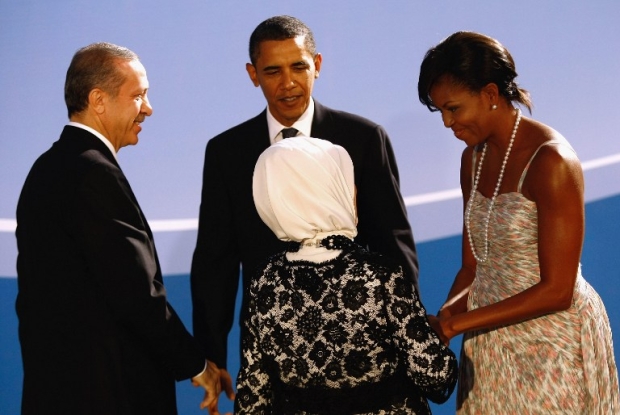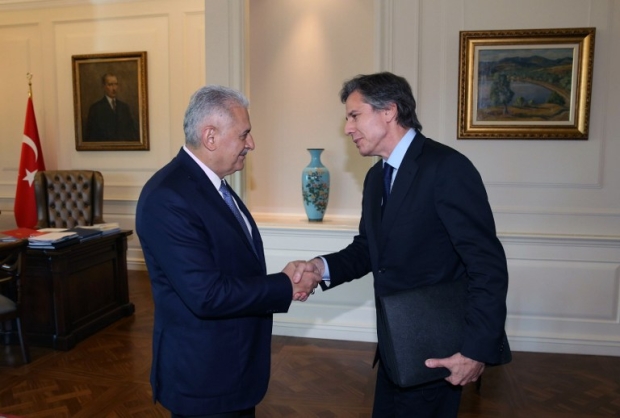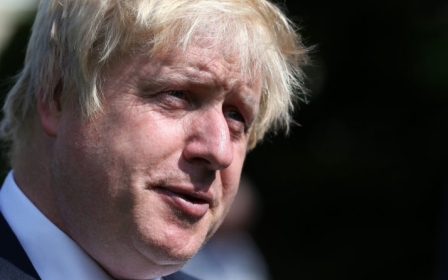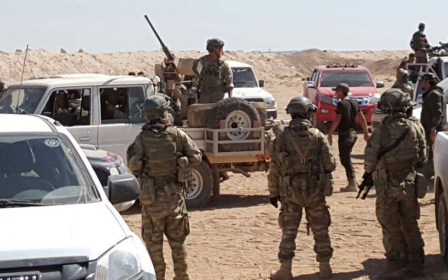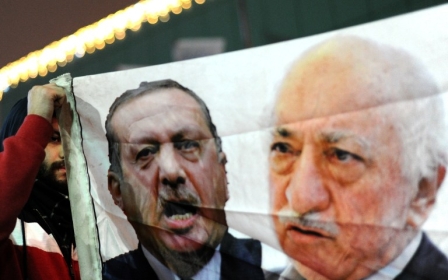Making up is hard to do: Turkey and the US try it again
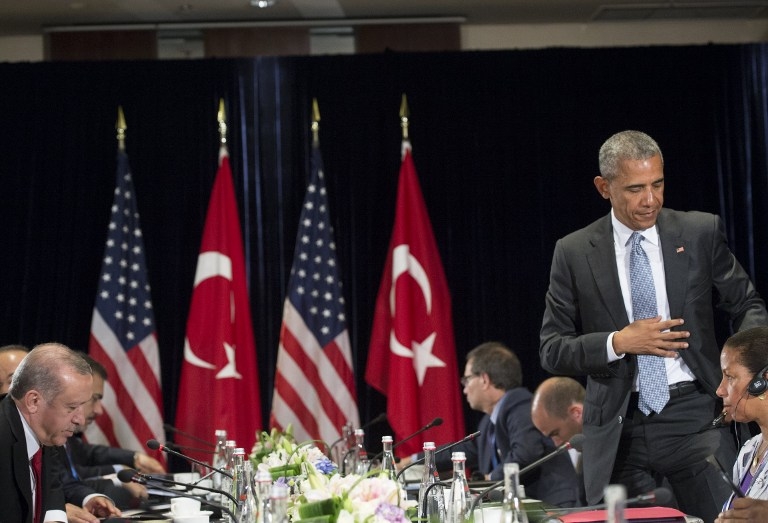
Recep Tayyip Erdogan has returned home from a five-day visit to the US which failed to produce any breakthrough in the troubled relations between his country and America.
Now the US deputy secretary of state, Anthony Blinken, has arrived in Ankara. He is accompanied by Brett McGurk, US special presidential envoy to the coalition against the Islamic State (IS) group. The visit appears to be the latest attempt to find common ground between Turkey and the US.
Mutual tension is running so high that America failed to recognise a third attempt to re-start dialogue when President Erdogan visited New York ten days ago
There is much talk about the growing tension between the NATO allies, with outspoken attacks on the US and its ambassador in Ankara in Turkish newspapers close to the ruling Justice and Development Party (AKP).
But the efforts are not all negative. Indeed, President Erdogan’s five-day visit to the US, pegged to his speech at the United Nations General Assembly on 19 September, was the third such visit he has made since March.
In each case, he has used a stay of a few days after a public address as an opportunity to hold meetings with US officials and opinion makers in a clear attempt to rebuild relations. But in each case, Turkish-American dialogue has evidently not been kick-started and the two sides remain distant and distrustful.
'Desk officer Obama'
This is a stark contrast to the state of Turkish-American relations in the seven years before 2013. President Barack Obama’s first foreign visit in 2009 was to Ankara, intended as a mark of recognition for the Muslim world in general and Turkey in particular. For several years after that, Erdogan enjoyed such good access to the White House that there were jokes in Washington about "Desk Officer Obama".
When that privileged access faded – Erdogan’s official interlocutor on his American visits these days is Vice President Joe Biden – the Turkish president was dismayed, but Washington’s attitude was that it had received nothing in return.
Ankara’s response might well have been that it did not get what it wanted either – for example, American backing after 2012 on the Syria crisis. With it, Turkey could have intervened in Syria with a no-fly zone which might have brought the civil war to an early end with a victory for Turkey’s allies in the Free Syria Army who are also US-backed.Confrontation
Since then, relations have become steadily more difficult as Turkey has seemed to drift away from the Western orbit and deviate from conventional democratic standards, with around 100 journalists in jail (apparently the largest number anywhere), a clampdown on the social media; and the violent breakdown of the peace process with the PKK (Kurdistan Workers' Party).
In Syria, Turkey watched with dismay as the US struck up a military alliance against IS with pro-autonomy Syrian Kurds of the PYD (Democratic Union Party), an offshoot of the Turkey-based PKK with many Kurdish fighters from Turkey in its ranks. Turkey fears that Kurdish moves for autonomy, either on its soil or in Syria, are the prelude to the emergence of a Kurdish ethnic state.
The coup attempt of 15 July in Turkey ratcheted these tensions to a new level. US observers were dismayed by the scale of the purges which followed, with over 40,000 people arrested, and at least double that removed from their posts.
Meanwhile Turks - and this includes the opposition as well as supporters of the ruling AKP - felt the US was dragging its feet deliberately rather than cracking down on the Gulen movement, a Pennsylvania-based Sufi brotherhood, which most Turks, regardless of their political affiliation, believe bears most responsibility for the conspiracy. Turkey, however, has made it clear that it does not go so far as to suspect US official complicity in the coup attempt.
In terms of the battle for US public opinion however, the Gulenists seem in the ascendant with many US newspapers and the public deriding the idea that an elderly religious leader could be responsible for a coup, though in fact some US observers have raised questions about Gulen for many years.
Furthermore, swingeing attacks on the United States and Britain are becoming the order of the day in English language Turkish newspapers supporting the government. These messages are apparently intended to get through and they do, heightening the sense of confrontation with Turkey when they are read in Washington or New York.
All mixed up
This being the case, it is perhaps unfortunate that Turkey’s response has been consistently to use only one voice to put its case, that of President Erdogan, who made more powerful oratorical, but unheeded appeals during his stay in America.
According to an experienced Turkish observer, a sense of tension and inner rage dominated the meetings. Turkey is understandably furious that a coup against its government may have been plotted on US soil - and that instead of receiving cooperation on security, it is being publicly told to prove its claims in court. But its harsh messages over Gulen got mixed up with diplomacy over other controversial issues.
The president also criticised the UN Security Council’s membership rules and raised concerns with Vice President Biden of active legal proceedings against a Turkish national on trial in the US for alleged sanctions-busting and gold trading. This is a highly risky thing for a foreign visitor to do.
Cooler heads
Blunter than usual diplomatic language sometimes works. It certainly seems to do so for Turkey in Brussels where senior EU officials tread very carefully and only make friendly noises whenever Turkey is mentioned these days. But that is not what American audiences are used to, particularly when Turkey has vociferous critics, not only in the Gulen movement, but also in the Greek and Armenian lobbies in Congress.
With tempers and distrust running high, perhaps the best hope is that Anthony Blinken and his team will find a way to create a working US-Turkish military partnership on the ground especially over operations against Raqqa. But that will only be possible if Turkey does not make over-reaching demands.
- David Barchard has worked in Turkey as a journalist, consultant, and university teacher. He writes regularly on Turkish society, politics, and history, and is currently finishing a book on the Ottoman Empire in the 19th century.
The views expressed in this article belong to the author and do not necessarily reflect the editorial policy of Middle East Eye.
Photo: US President Barack Obama leaves following a meeting with Turkish President Recep Tayyip Erdogan on the sidelines of the G20 Summit in Hangzhou on 4 September 2016 (AFP)
Middle East Eye propose une couverture et une analyse indépendantes et incomparables du Moyen-Orient, de l’Afrique du Nord et d’autres régions du monde. Pour en savoir plus sur la reprise de ce contenu et les frais qui s’appliquent, veuillez remplir ce formulaire [en anglais]. Pour en savoir plus sur MEE, cliquez ici [en anglais].



